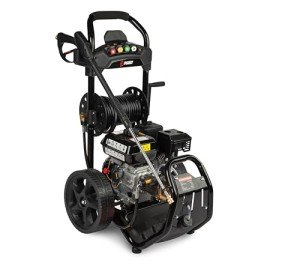Understanding Power Tools: Essential Guide for DIY Enthusiasts and Professionals
Power tools are important instruments that revolutionize how jobs-- from basic repairs to intricate construction activities-- are performed. The advancement of these tools has significantly enhanced performance, precision, and safety in various fields, consisting of building, woodworking, metalworking, and vehicle repair. In this short article, we will explore various kinds of power tools, their applications, safety steps, maintenance, and frequently asked concerns.
Types of Power Tools
Power tools can be broadly classified into two primary types: corded tools and cordless tools. Each classification includes a range of devices matched for specific jobs. Below is a table summarizing some common kinds of power tools and their applications.
| Type of Power Tool | Typical Examples | Main Applications |
|---|---|---|
| Drills | Cordless Drills, Hammer Drills | Drilling holes in wood, metal, or masonry |
| Saws | Circular Saws, Jigsaws, Miter Saws | Cutting wood, metal, and other products |
| Sanders | Orbital Sanders, Belt Sanders | Smoothing surface areas and preparing materials |
| Grinders | Angle Grinders, Bench Grinders | Grinding, cutting, and polishing materials |
| Nailers | Cordless Nail Guns | Attaching products using nails or staples |
| Impact Drivers | Cordless Impact Wrenches | Driving screws and bolts rapidly and successfully |
Applications of Power Tools
Power tools have a wide variety of applications throughout different sectors. Here are some of the main environments where power tools are typically utilized:
- Construction: Drills, saws, and nailers are crucial for framing, roofing, and basic building jobs.
- Woodworking: Saws, sanders, and routers are popular among woodworkers for crafting furniture and kitchen cabinetry.
- Metalworking: Angle grinders, drill presses, and welders are essential for those dealing with metal structures and parts.
- Automotive: Impact wrenches and diagnostic tools are commonly used in repair work and upkeep of vehicles.
- Home Improvement: For DIY projects, house owners frequently employ drills, saws, and nail weapons for restorations and repair work.
Security Measures
While power tools are helpful, they can likewise position substantial risks if not utilized correctly. Here are vital precaution to think about when using power tools:
- Personal Protective Equipment (PPE): Always wear proper gear, such as safety goggles, gloves, and ear protection.
- Read the Manual: Understanding the tool's manual is essential for safe operation.
- Inspect Tools Regularly: Before each use, check for damage or wear that might affect efficiency or safety.
- Secure Workpieces: Use secures or vises to protect your workpieces to avoid movement throughout operation.
- Maintain a Clean Work Area: Clear your office of mess to reduce the risk of mishaps or injuries.
- Know Surroundings: Ensure the area is devoid of any threats, consisting of interruptions or prospective trip dangers.
Upkeep of Power Tools
Regular upkeep of power tools prolongs their life and enhances efficiency. Here are some practices to keep tools in top condition:
- Cleaning: Remove dust and particles from the tool after each use. Usage appropriate cleaners for different types of tools.
- Lubrication: Regularly oil moving parts according to the manufacturer's suggestions.
- Battery Care: For cordless power tools, effectively charge and store batteries to preserve their lifespan.
- Blade Replacement: Sharp blades make sure cleaner cuts; replace dull or damaged blades as needed.
- Calibration: Periodically check and calibrate tools to guarantee accuracy in efficiency.
Frequently Asked Questions about Power Tools
1. What is the distinction in between corded and cordless power tools?
- Corded tools are powered by electrical energy through a plug, providing constant power for heavy tasks. Cordless tools work on rechargeable batteries, supplying portability and benefit however may have power constraints.
2. How do I pick the right power tool for my task?
- Consider the material you'll be working with, the complexity of the job, and whether you need portability. Research study tool requirements and compatibility with your jobs before buying.
3. Exist any specific safety standards for power tools?
- Yes, many countries have actually developed safety standards for power tools, guaranteeing they meet strenuous production guidelines. Always try to find accreditations such as ANSI (American National Standards Institute) or ISO (International Organization for Standardization).
4. Can Tool Store Near Me utilize power tools inside your home?
- Most power tools can be used inside your home, but guarantee sufficient ventilation and think about sound levels. Tools that produce fumes or dust ought to be utilized in well-ventilated locations.
5. What upkeep jobs should I perform routinely?
- Regular jobs consist of cleansing, inspecting for damage, lubing moving parts, and charging or preserving batteries for cordless tools.
In summary, power tools are a vital component of both expert and DIY projects. Comprehending the various kinds of tools, their applications, safety procedures, and upkeep practices guarantees efficient and safe usage. By equipping oneself with knowledge and preparation, individuals can with confidence handle any project, from home repairs to detailed building tasks. Power tools not only make work much easier but likewise boost imagination, enabling users to transform their visions into reality.

